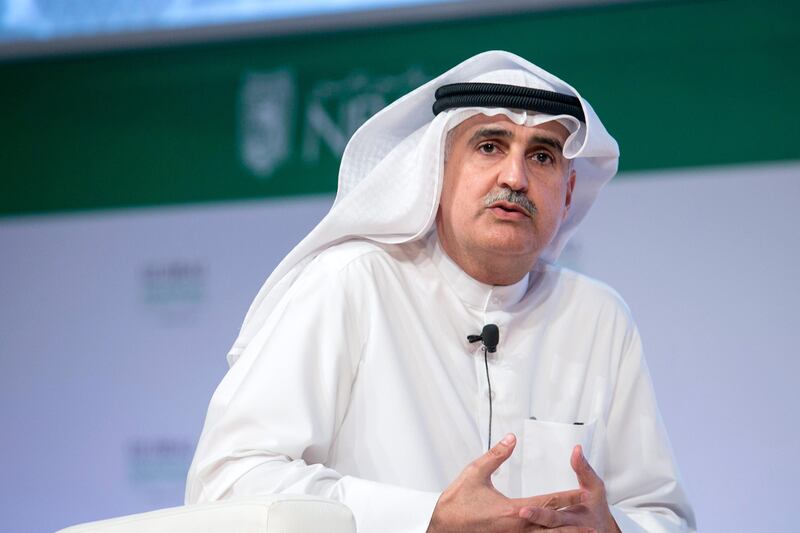The region’s national oil companies (NOCs) are reviving plans to beef up their trading operations, although it is an area they have long shied away from.
Among the new efforts, Abu Dhabi National Oil Company is currently studying proposals to make its trading and risk management contribute to the bottom line, part of the company's broader effort to be more commercial and in line with its private sector peers.
In the spring, Saudi Aramco unveiled its new Aramco Trading Company website (ATC) to announce stepped-up trading in refined oil products - although still not in crude oil, its main export. After a slow first five years, ATC last summer put Ibrahim Al Buainain, a graduate of MIT's Sloan School of Management, in charge. He is bringing in the more sophisticated, data-driven trading approach necessary to maximise margins as Aramco invests heavily in downstream assets worldwide, which means it has many more products to sell and trade.
Also, Kuwait Petroleum Corporation has been consulting with major oil companies in recent months, including BP and Royal Dutch Shell, about new efforts to bolster trading operations, according to several people involved.
Still, the perennial question remains: why, in a region famed for its centuries of trading prowess, and home to the world’s largest and most powerful oil producers, have oil trading efforts so far been cursory?
The risk-averse cultures in NOCs hitherto run more as government bureaucracies than commercial organisations is one explanation.
"A key reason is that losses aren't tolerated," said Owain Johnson, the managing director of CME Group and until last year the head of Dubai Mercantile Exchange (DME). "If you have a hedging programme, one element of it is going to lose money. Hedging is like an insurance policy, except at the NOCs you would get fired if you took out an insurance policy and there wasn't actually a fire - that doesn't really motivate people."
Certainly, a plethora of case studies of hedging-turned-financial-nightmare (typified by Metallgesellschaft’s 1990s oil trading debacle) have given NOC leaders cause for caution. On the other hand, there is a new realisation that the absence of a modern trading operation means they are leaving money on the table.
As an executive at one regional NOC said: “The boss knows that a well-run trading operation can add US$1 to every barrel. There’s been a lot of talk but nothing much has happened yet, so he thinks it’s time to do something.”
An innovative approach borne out of necessity was adopted this year by Iraq's State Organization for Marketing of Oil (Somo). The country has been stretched financially by internal conflict and Somo itself has had its resources squeezed, so that its sales and marketing staff have had to improvise.
In the spring, Somo's director-general, Falah Alamri, began holding auctions through DME, and so far sold 6 million barrels of mostly Basrah Light crude oil. This month, Somo is expected to sell another 2 million barrels of its Basrah Heavy crude, and the list of approved bidders - which includes trading houses, refiners, oil majors - has risen to more than 50 from 30, according to participants.
The programme, run by Somo’s head of Asian marketing, Ali Al Shatari, while not exactly state-of-the-art trading, has helped to push up the price premium for Iraq’s crude by about 30 per cent and caught the eye of other NOCs, according to well-placed market sources.
Also in May, Somo set up a Dubai-based joint venture with the Swiss trading unit of Russia's Lukoil, with a mandate to sell an additional 2 million barrels a month.
Other developments helping to revive the NOCs' interest in trading include concern over moves by China's big oil companies to exert greater influence over pricing of Middle East oil.
But the most important factor is the new sense of urgency to be more entrepreneurial, the milestone for which was Aramco's plan for an IPO of shares. Fostering that cultural shift is the big challenge.
"It's a difficult transition to go from merely being a producer of oil, to selling through third parties, to selling on the spot markets, and then to buying and selling, which is an entirely different thing," said Jorge Montepeque, who is the senior vice president at Italian major Eni's shipping and trading division, and is credited with inventing the modern oil pricing method while the head of oil at Standard & Poor's Platts unit.
Saudi Arabia's transformation, led by Aramco, is having a knock-on effect, he said. "After ATC, the other NOCs are thinking: 'well if they can do it why don't we?'" he says.
Meanwhile, Mr Johnson reckons the best approach for the NOCs would be a radical one. “The modern approach would be to separate a trading entity out from the parent NOC to try to build a new culture and a new risk-taking spirit; also, it would help with pay,” he said, because introducing a bonus culture into the existing organisations might be too disruptive.
“Ideally, they would do it in London, New York or Singapore so that they are part of an established trading culture.”





